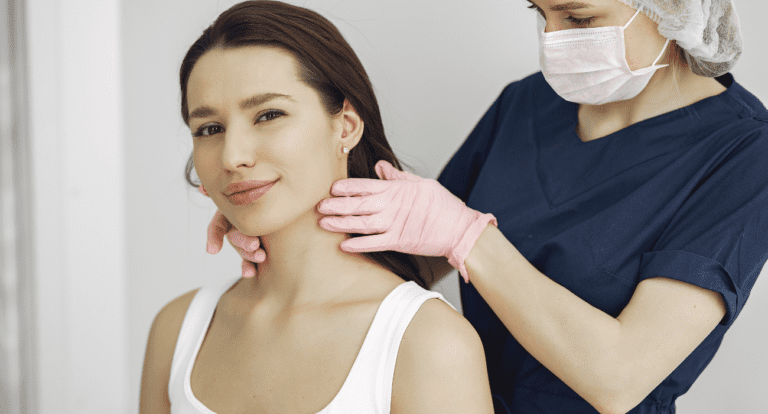Top 5 Audiology and Hearing Care Practices That Will Keep You Healthy
Today, more than one in five Americans have hearing loss. If you’re reading this, it’s almost certain that you do too. What may not be as apparent is how much your hearing loss impacts your day-to-day life. You may not even realize that you have a hearing problem until it’s almost too late.
Your ears are miraculous organs that help you hear and understand the world around you. However, they also play an equally important role in keeping you healthy. In fact, the health effects of poor hearing are so significant that it should no longer be considered a normal part of growing old or being a part of society with any degree of regularity.
That is why we have prepared this list of top audiology and hearing care practices that will keep you healthy and alert throughout your lifetime.
Take care of your hearing with regular check-ups
Regular check-ups are vital when it comes to your hearing. Hearing loss can develop gradually, but most cases can be prevented with regular check-ups. You’ll need to visit an audiologist who will conduct a hearing test to measure your hearing ability. During the test, your audiologist will measure how well you can hear sounds such as speech, engine noise, and music. If your audiologist finds that you have hearing loss, he or she will be able to offer you advice about preventative measures to take.
It’s important to get your hearing checked regularly so you can catch problems early. Ear infections are one of the most common causes of hearing loss among adults. And chronic ear infections can lead to hearing loss, even mild hearing loss. Having regular check-ups can help prevent these conditions.
Invest in hearing protection
Hearing protection is essential for anyone who engages in noisy work. If you work in a noisy place, you should invest in hearing protection. This can be achieved by wearing hearing protection earmuffs or earplugs. The best hearing protection for you will depend on a few factors.
The level of noise, the level of exposure, and the type of hearing protection that you prefer. It’s important to keep in mind that noise-induced hearing loss can be permanent. It’s also important to keep in mind that you can reduce the risk of hearing loss and protect your hearing simultaneously. Instead of focusing on one or the other, why not do both? It’s much easier than trying to do one without the other.
Eat a well-balanced diet
Eating a balanced diet is a key practice when it comes to hearing health. A well-balanced diet contains nutrients that help protect your hearing. Notably, it contains Vitamin A, C, and E, zinc, and antioxidants. Antioxidants are compounds that neutralize free radicals. Free radicals occur naturally, but they can also be produced by things like airborne pollutants, loud noise, and high levels of sugar in the diet.
According to professionals in hearing healthcare in Rahway, vitamins A, C, and E are antioxidants that are essential for the maintenance of healthy hearing. Vitamin A is essential for the eyes and the skin. It’s also essential for the maintenance of healthy hearing. C is crucial for the maintenance of healthy hearing. It’s also essential for the maintenance of good vision. E is an essential nutrient that plays a key role in protecting your hearing from harm. It’s also an antioxidant that can help protect against age-related hearing loss.
Drink plenty of water
Water is a critical nutrient for all parts of the body, but it’s especially important for your ears. Hydration is key to maintaining the health of the ear canal and outer ear. If you’re not drinking enough water, you may experience earaches and infections such as the swimmer’s ear. Swimmer’s ear is an infection that occurs when water irritates the ear canal. It can be easily treated by avoiding ear infections, keeping the ear clean and dry, and using a mild antibiotic. If you drink water, you’re also helping to keep your stomach pH level at a healthy level. This can help prevent acid reflux and ulcers of the stomach from causing a variety of health problems.
Exercise regularly
Regular exercise is essential for keeping your ears healthy. It can help to prevent hearing loss by lowering your risk of developing an ear infection. Swimming and other water-based activities are the most common cause of ear infections in adults. Swimming can also lead to hearing loss because it causes pressure on the ear canal and causes it to become misshapen. Exercising regularly also helps to keep your body healthy. It encourages good cardiovascular health, and it can prevent hearing loss from loud noises. Hearing loss can be caused by loud noises. If you work in a noisy environment or listen to loud music, you should try to protect your ears by wearing earplugs.
Keep up with sleep hygiene practices
Keeping your hearing in top condition requires good sleep hygiene. It’s important to get enough sleep to stay healthy, but it’s also important to make sleep a priority. Studies have shown that sleeping less than five hours a night can lead to an increased risk of hearing loss. Additionally, poor sleep has been shown to contribute to many other health issues including cardiovascular disease, obesity, depression, and even aging.
Proper sleep hygiene practices can help you to stay healthy and happy. Practice good eye hygiene by keeping your eyes and eyelids clean. Wash your hands before touching your face and doing other activities that can cause bacteria to build up on your hands. Avoid aggressively scrubbing your face as this can scrub your skin, causing micro-abrasions in the skin that are much more damaging than normal skin abrasion. Avoid eating large quantities of sugary foods, carbonated beverages, and fatty foods within six hours before bedtime. This can alter your body temperature, causing it to rise and fall unpredictably.
Conclusion
Your hearing is your most important sense, so it makes sense to take good care of it. Hearing loss can be frustrating and may feel like a burden to live with, but it doesn’t have to be. With the right audiology and hearing care practices, you can prevent hearing loss and enjoy your life to the fullest. Hearing aids are a great option for those who don’t have time to visit an audiologist on a regular basis. A hearing aid is an excellent choice for those who have never had a hearing test, as well as those who have had hearing loss but have never visited an audiologist. Hearing aids are a great way to help you hear better, but they’re not a long-term solution. They also only work when you use them, so they can’t protect your hearing from loud noises. To keep your hearing healthy, you’ll need to make it a priority.







